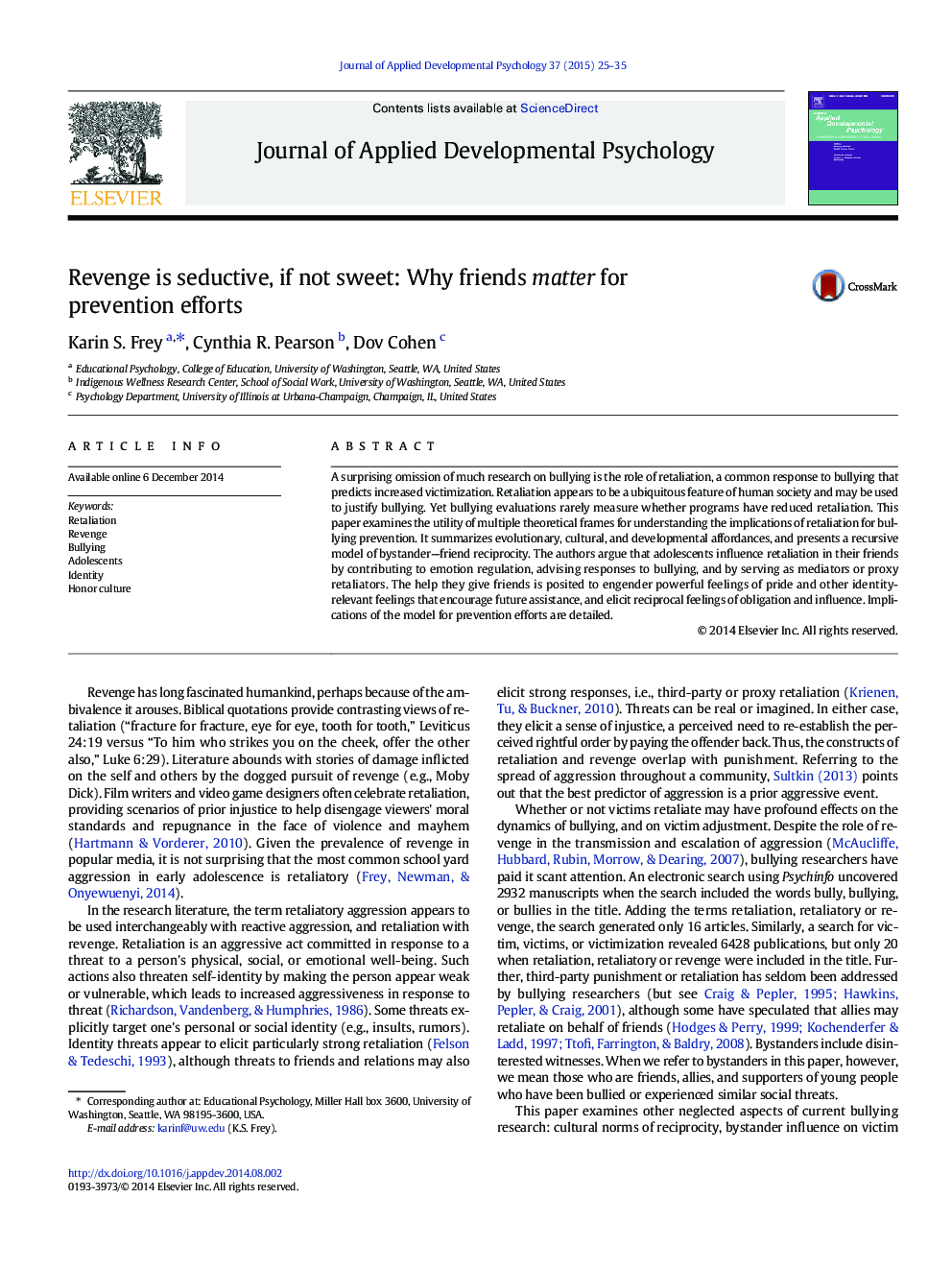| کد مقاله | کد نشریه | سال انتشار | مقاله انگلیسی | نسخه تمام متن |
|---|---|---|---|---|
| 359658 | 620265 | 2015 | 11 صفحه PDF | دانلود رایگان |
• Retaliating perpetuates and escalates the severity of bullying.
• Unlike bullying, retaliation is often viewed as morally defensible, even a duty.
• Adolescents may encourage revenge and act as proxy retaliators for friends.
• Adolescents may also encourage pacific responses and act as mediators for friends.
• Helping friends is a powerful source of pride, belonging, agency, and purpose.
A surprising omission of much research on bullying is the role of retaliation, a common response to bullying that predicts increased victimization. Retaliation appears to be a ubiquitous feature of human society and may be used to justify bullying. Yet bullying evaluations rarely measure whether programs have reduced retaliation. This paper examines the utility of multiple theoretical frames for understanding the implications of retaliation for bullying prevention. It summarizes evolutionary, cultural, and developmental affordances, and presents a recursive model of bystander—friend reciprocity. The authors argue that adolescents influence retaliation in their friends by contributing to emotion regulation, advising responses to bullying, and by serving as mediators or proxy retaliators. The help they give friends is posited to engender powerful feelings of pride and other identity-relevant feelings that encourage future assistance, and elicit reciprocal feelings of obligation and influence. Implications of the model for prevention efforts are detailed.
Journal: Journal of Applied Developmental Psychology - Volume 37, March–April 2015, Pages 25–35
